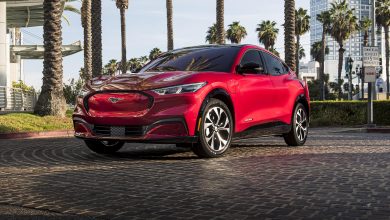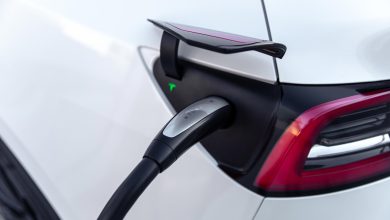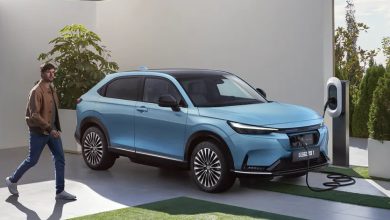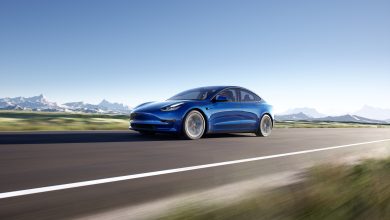Audi Inches Closer To Carbon Neutrality With Q8 e-Tron
EV NewsThe Q8 e-tron Sportback trim can travel up to 375 miles
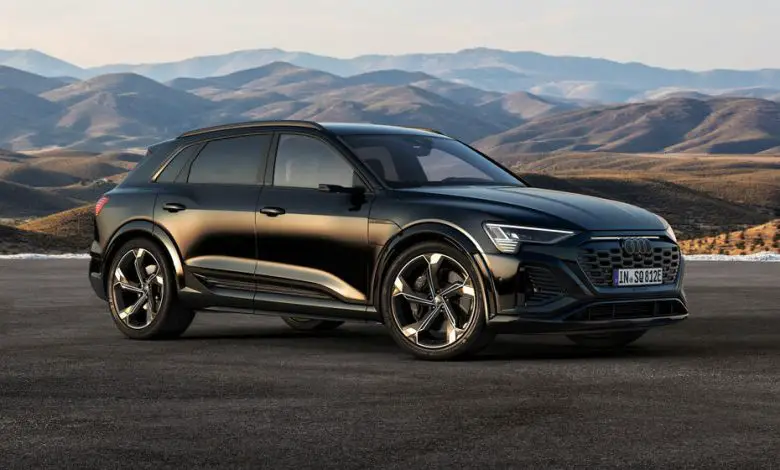
Audi kicked off the production of the Q8 e-tron on 14 December 2022 in its factory in Brussels, Belgium. The first in the series to be unveiled was an SUV wearing a striking-blue color. Shortly afterward, a Sportback variant in gray which features a sloping roofline followed.
Selected media members were invited for a first look at the two cars. While everyone was thrilled by the detail and features of the new premium electric vehicles, Audi was also excited to show off the carbon-neutral facility where the vehicle will be produced.
From the second half of 2023, Audi’s Brussels facility will be making the new Q8 e-tron alongside 40,000 of the smaller Q4 EVs. The speed at which the company that was once in charge of producing the Volkswagen Beetle (or Bug) transitioned to an all-electric future is genuinely remarkable.
Speaking about the importance of the Q8 e-tron, Gerd Walker who is a board member for Production and Logistics at Audi said; “With the enhanced range, efficiency, and sharpened design, the new Audi Q8 e-tron is a powerful statement for electromobility.”
Features of the new Audi Q8 e-tron
Call the new Audi Q8 e-tron an evolution of the existing e-tron SUV being produced in the Brussels facility since 2018 and you won’t be wrong. The redesigned Q8 pushes the boundaries on what its predecessor could do to make the brand more competitive in the evolving market.
The range of the first e-tron was just 226 miles (based on EPA assessment). This is no longer attractive compared to what newer EVs have to offer—including those in the lower price region. Considering the fact that most EV drivers are fighting range anxiety, the original e-tron has lost the charm it once radiated.
The new e-tron attempts to address the market needs with improved aerodynamics, modified gearing and linked “rolling parts,” and other efficiency tweaks. The new car also comes with battery packs assembled in the Brussels facility that offers more range between charges.
Therefore, drivers of the improved Q8 e-tron Sportback trim can travel up to 375 miles (600 kilometers) on a single charge using Audi’s 115 kWh battery pack. The range of the SUV trim is slightly lower at 364 miles (582 kilometers). The range is based on the Worldwide Harmonized Light Vehicle WLTP standard rather than the EPA.
Another area that has witnessed an improvement is the charging speed. While the charging speed is not the fastest in the industry, the vehicle is equipped with 170 kW charging capability. With this feature, drivers can charge the car from 10% to 80% in just 30 minutes using appropriate charging stations.
Nevertheless, Audi did their best to keep most of the features from the original e-tron which fans have come to love.
The evolution of Audi’s carbon-neutral factory in Brussels
Audi’s factory in Brussels dates back to the late 1940s. It was originally designed and built by Volkswagen (Audi’s parent company) for making the VW bug, (or Beetle). However, it has become the home of many other Volkswagen models over the years.
The factory was handed over to Audi in 2007. Audi started making use of it for the production of sub-compact A1 mode. After producing internal combustion engine (ICE) vehicles for over 6 decades, the factory gradually started to transition to electric vehicles in 2016. In 2018, the e-tron SUV was launched into the market.
Following the transition to EVs, Audi continued to explore sustainable production at the facility. According to the automaker, investing in existing plants rather than building a new one from the ground up is economically, socially, and ecologically sustainable. Some of the evolution that has happened in the factory over the years are highlighted below.
The Brussels plant switched to renewable energy in 2012 starting with the installation of a 9,000-megawatt-hours photovoltaic system on the factory’s roof—which is one of the largest in the region. All energy demands are fulfilled with wind and solar power, any additional energy needs are met with carbon.
By mid-2023, the installation of a greywater system will be completed in the facility. The system will replace 100,000 cubic meters of potable water utilized in car manufacture each year. Once installed, the greywater system allows reuse in a closed-loop system.
The facility is also exploring ways to manage the supply chain in a sustainable way. For example, although the traction motors for the EVs are made in Hungary, they are transported to the Brussels factory using sustainable rail freight instead of road transport which leaves a carbon footprint behind.
Inasmuch as Audi purchases the battery cells that go into their battery pack from a third-party supplier, they ensure that their supplier makes use of only renewable energy for making their cells. The combination of these efforts earned the Brussels factory a certified carbon-neutral status in 2018.
Lessons from the Brussels factory will be implemented in other Audi facilities to help them to achieve carbon-neutral status by 2025 which is captured in the company’s Mission-Zero program. Therefore, customers in the U.S. and Europe will take delivery of the Q8 e-tron as a certified carbon-neutral vehicle.
Audi has its eyes on human capital development
The problem with the electrification of passenger cars (and other disruptive technologies) is that most employees are often phased out with the ICEs. Audi is taking a different approach by investing over 1 million training hours in the 3,000 staff in the facility. They are training them to also transition to electrification.
The innovative approach that Audi has taken clearly shows that both the facility and the staff are adaptable. The Brussels facility has already made 160,000 e-trons since 2018.

